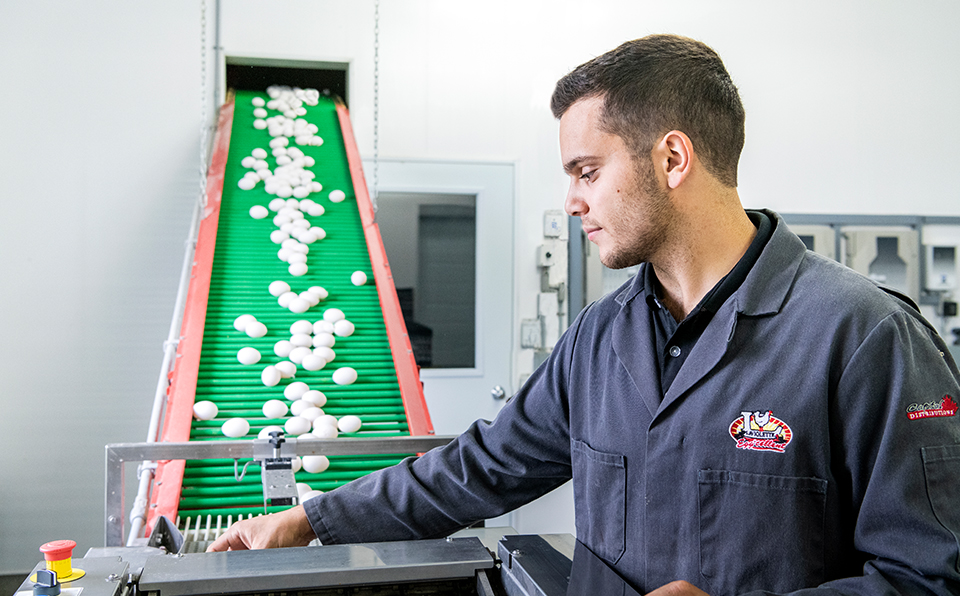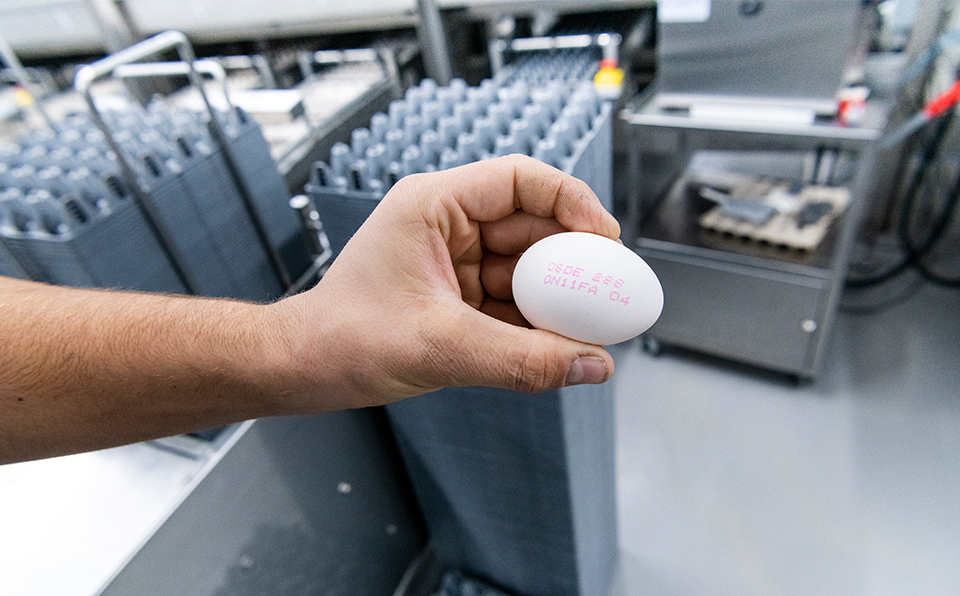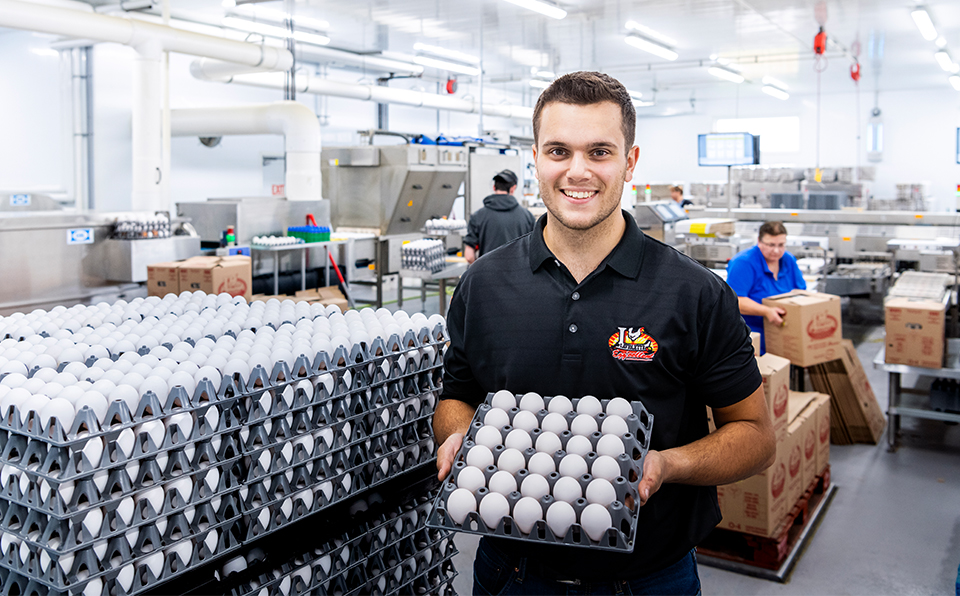
Grade A education: Q&A with recent agricultural school graduate
By Egg Farmers of CanadaFamily farms hold a unique place in Canadian history, balancing new and innovative technology with age-old traditions. This is certainly the case for recent agricultural graduate Justin Laviolette, who’s set to bring everything he has learned as part of the Institut de technologie agroalimentaire du Québec (ITAQ) agriculture program into practice on his family farm in St. Isidore, Ontario.
Justin’s grandparents founded Ferme Avicole Laviolette in the late 1970s, with his father taking over in 2003. The farm, which originally included hogs as well as chickens, has undergone dramatic changes over the decades to keep up with evolving health and safety guidelines. Today, the farm focuses solely on producing, labelling and distributing high-quality eggs.
Justin spent years on the farm growing up, though it wasn’t until around the age of ten that he really started to realize that farm life was for him. Now, a career in egg farming is something he’s excited to embark on, and he’s looking forward to growing his family’s legacy from a business perspective.
“What I love the most is the way of living. You decide when you start, you decide when you finish,” says Justin. “I also love the challenges that get thrown my way, because then I have to use my skills to surpass them. That’s what really drives me.”

In Justin’s college program, students can enroll in a variety of classes to ensure a well-rounded education across all aspects of farm life. From business classes to learning how to repair and maintain tractors, students emerge able to handle a range of regular challenges farmers are faced with every day.
But it’s not just what happens on the individual farm that students learn about—it’s agriculture and the economy on a global scale.
“We have a class on politics from around the world. We learn things that could happen in different countries, and then if that does happen, what the impacts will be on our industry or in Canada in general,” shares Justin. “Everything’s related to the management and business side of things. We learn HR, we learn to pay bills, and basically everything happening in the business from a financial standpoint.”
All these aspects of the business are crucial for running a successful farm. Students also learn about genetics and science, which Justin is able to apply to egg farming to help create efficiencies and ensure high-quality eggs. New technology through science is also used to trace each egg back to the individual hen and farm, giving more visibility for farmers and producers.

Even with his real-life experience growing up on a farm, Justin is an advocate for new students to attend an agriculture program if they’re considering farming. Beyond learning about his specific industry, the connections made with other students are also beneficial in forming important networking connections for the future.
“Everyone in the program is really passionate about agriculture,” he shares. “It’s really open for everybody. They make the program for people with a [farming] business and for people without a business who are interested in the consultant side.”

As a third-generation farmer, both his hands-on experience from years working with chickens and egg production equipment, and his three years of formal business and agriculture education have set Justin on a path to confidently continue the family tradition of delivering fresh, local, high-quality eggs to Canadians.
For more information on the Laviolette family farm in St. Isidore, Ontario, you can also read about Justin’s brother Kevin and his journey as a local egg producer.